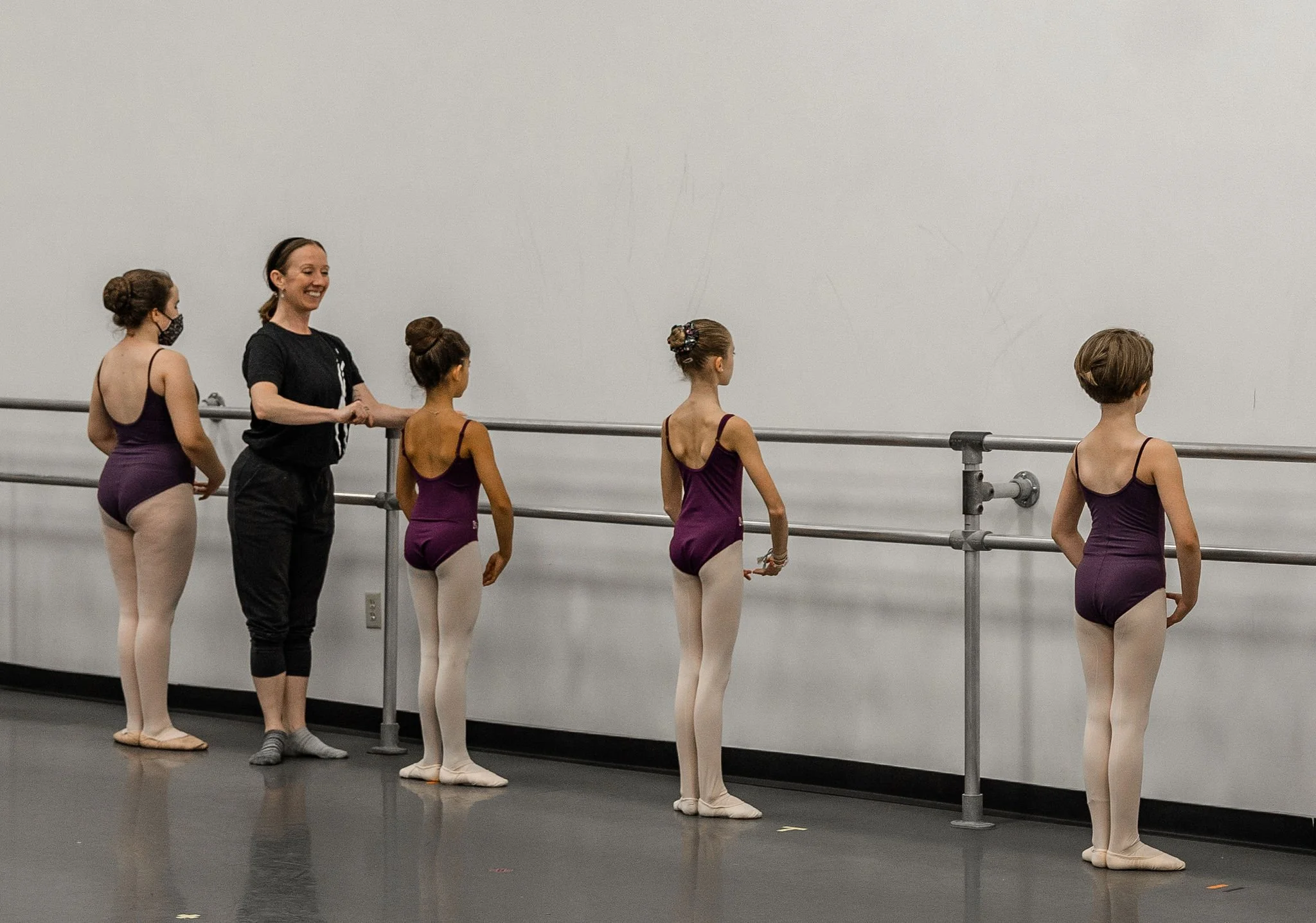Student & Family Benefits
-
School of Nashville Ballet students have several opportunities to interact with Nashville Ballet’s professional company. Whenever possible, Academy Division teachers take students to company rehearsals to be exposed to a professional dance environment. Selected upper Academy students have the opportunity to take class with Nashville Ballet’s professional company three to four times per year, as well as with guest teachers and visiting choreographers.
-
Many of the youth casts in the professional company’s performances are exclusively selected from School of Nashville Ballet. Students also receive priority casting in auditions open to the general public, such as Nashville’s Nutcracker.
-
Nashville Ballet partners with other dance companies from around the U.S. to host Summer Intensive auditions at the Martin Center for Nashville Ballet, allowing our Academy and Professional Division students to audition for several summer programs from their home studio and save significant time and travel expenses.
-
Nashville Ballet was selected as the site for Youth America Grand Prix’s (YAGP) Job Fair in 2023, which brought in Artistic Directors from all over the country to audition dancers for professional company jobs. Also in 2023, Nashville was added as a regional competition spot, something we hope to be included in every year! Read more about this prestigious competition that awards hundreds of scholarships and contracts to students every year.
-
We believe seeing professional performances are an integral part of a student’s dance education, so Nashville Ballet offers enrolled students under the age of 18 opportunities to see main stage performances at TPAC at no cost. Click here for more details.
And More!
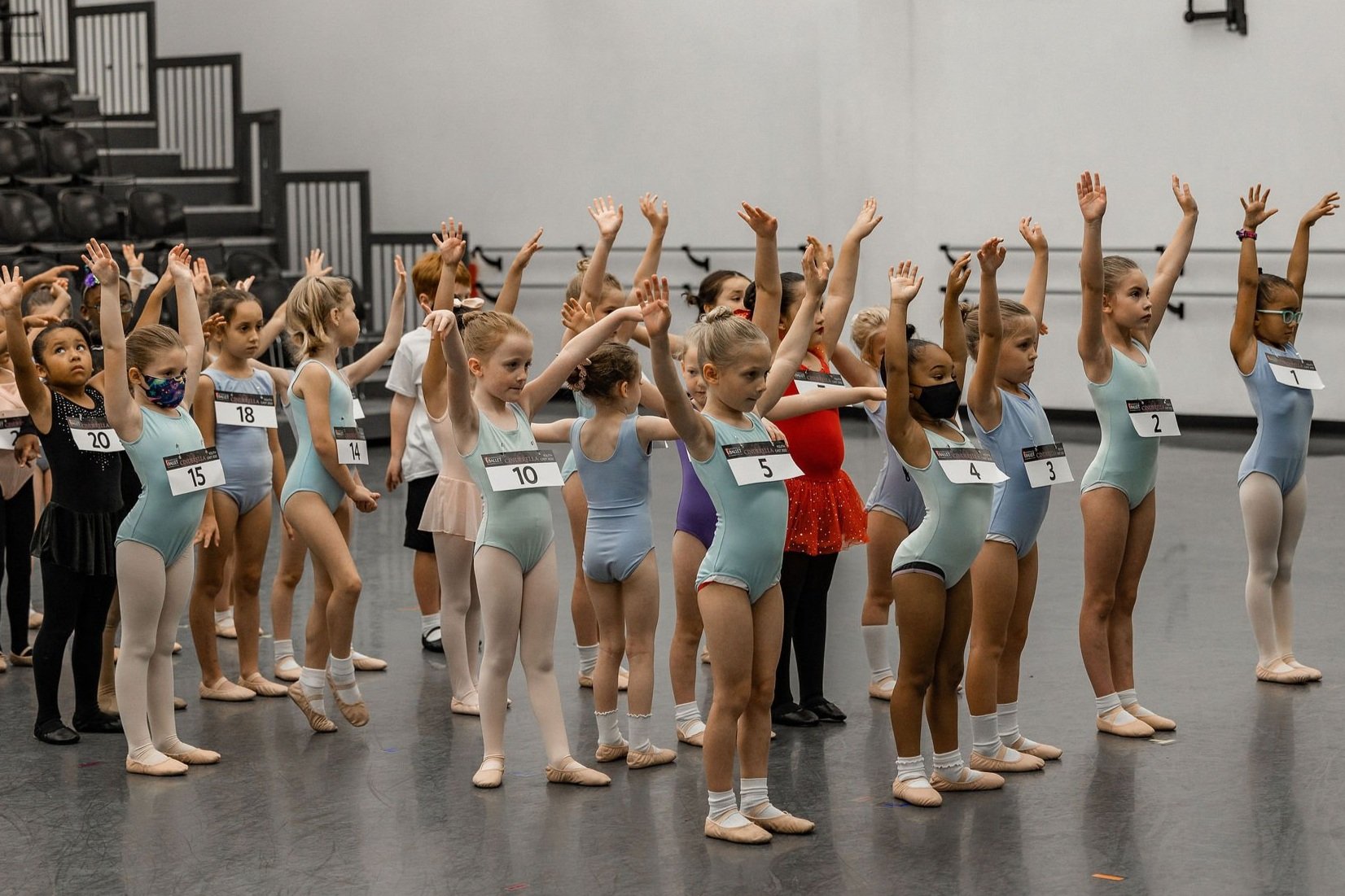
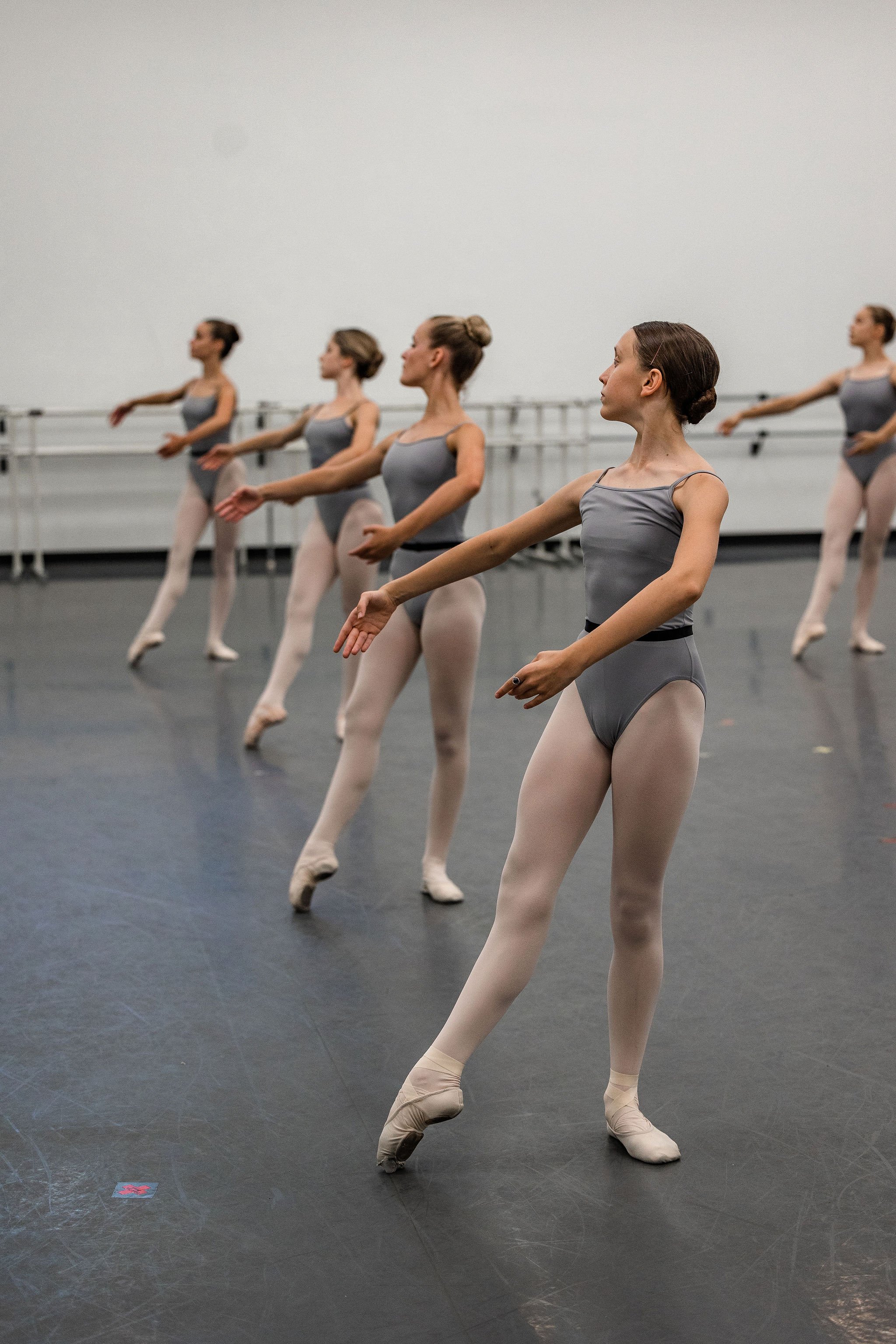
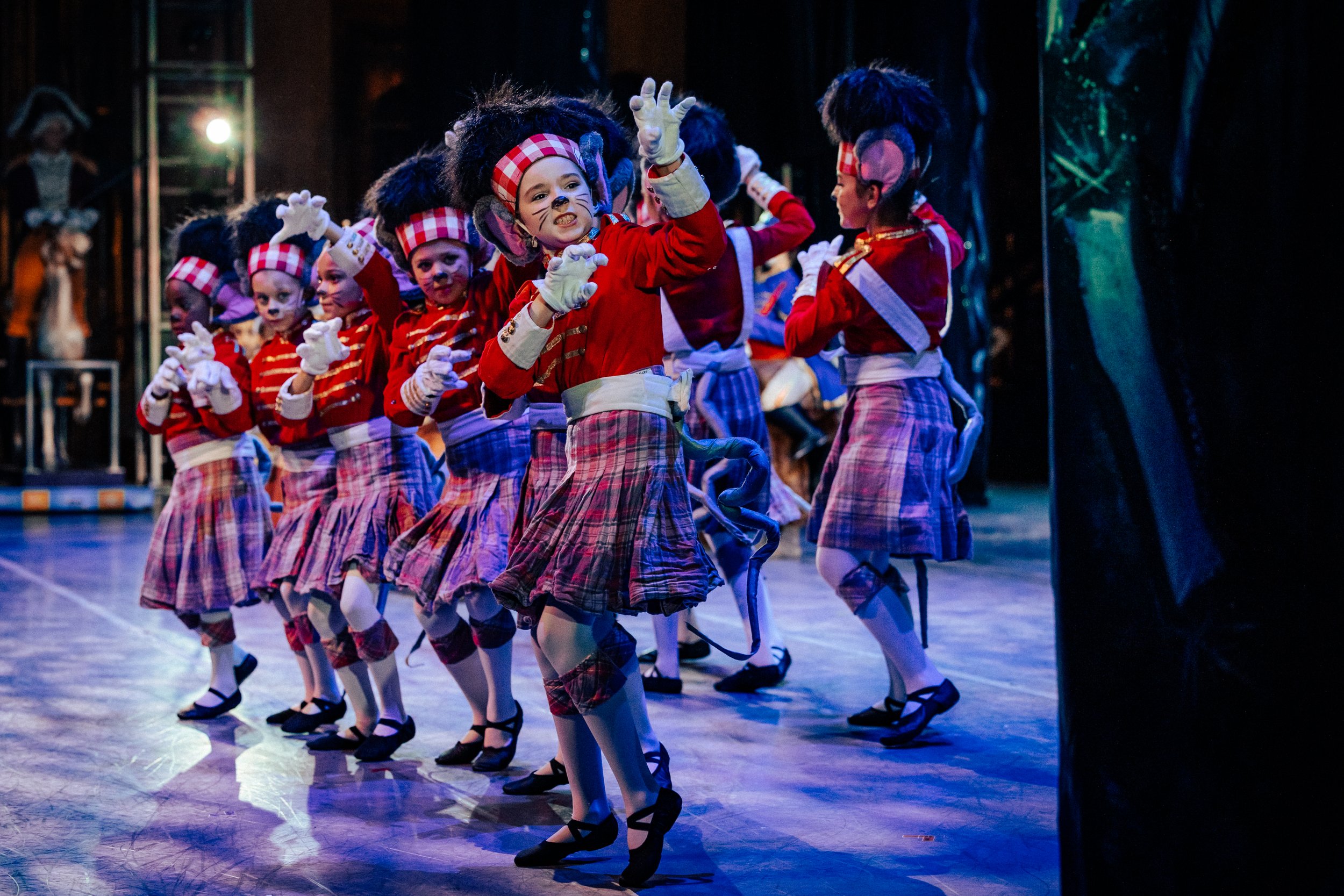
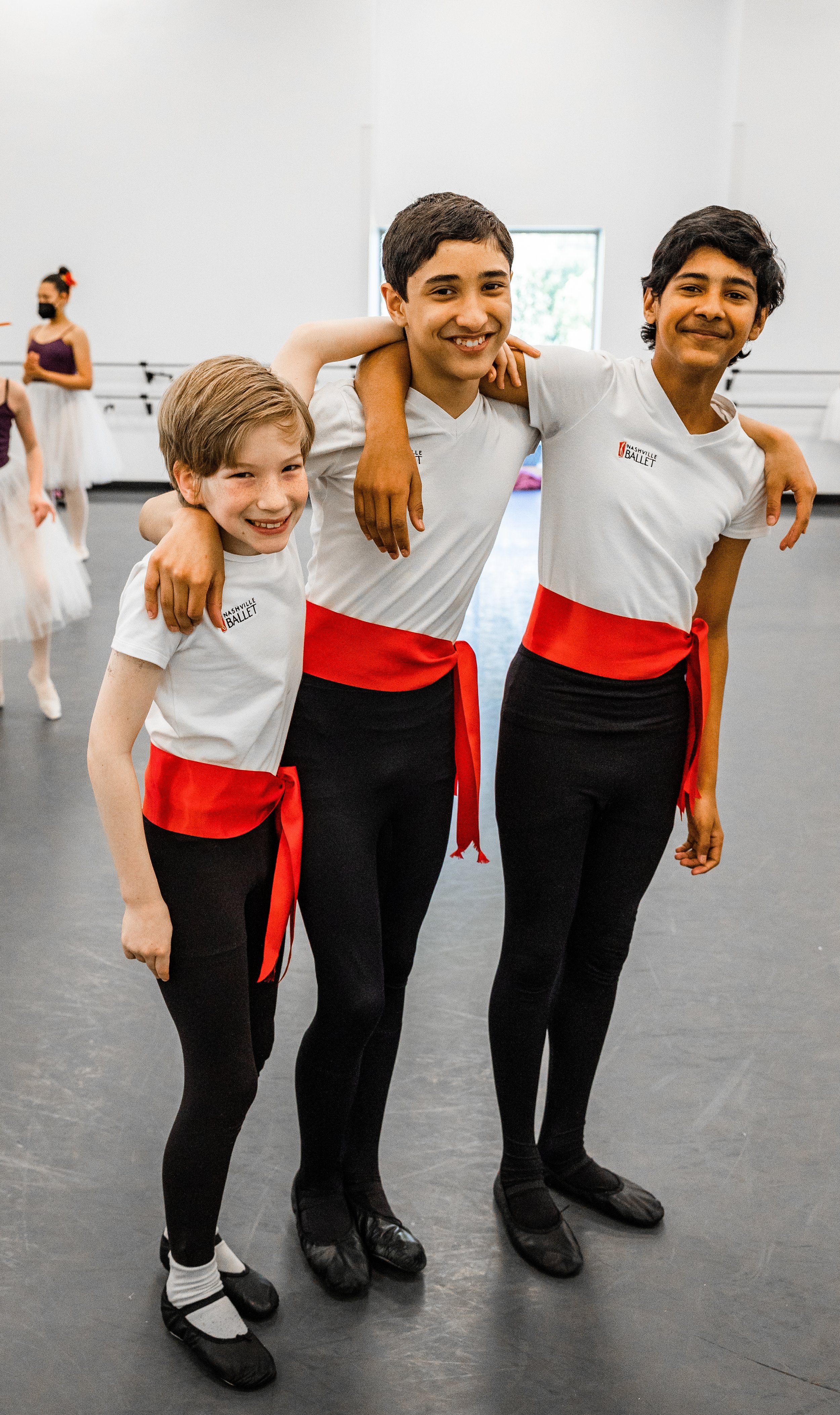
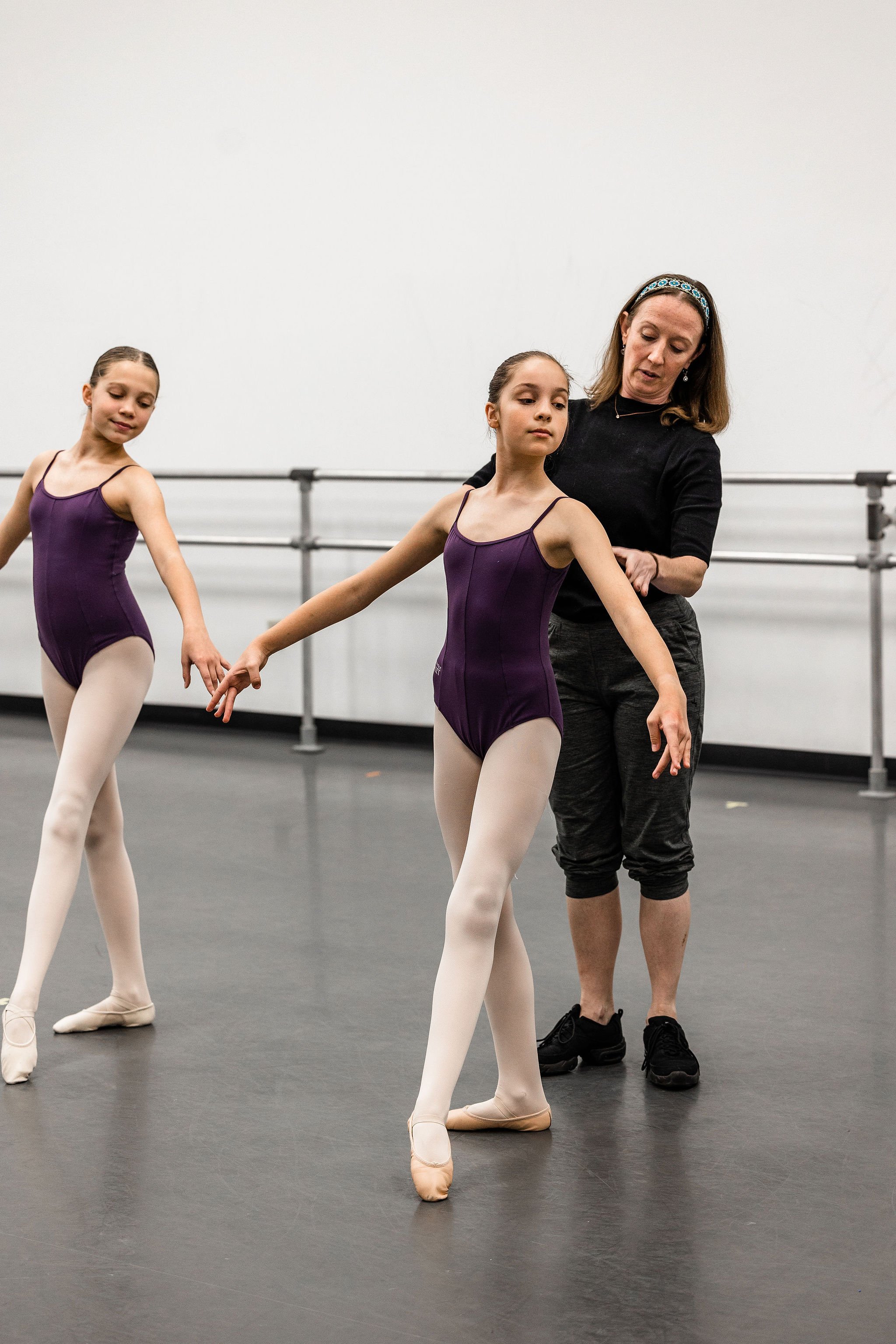
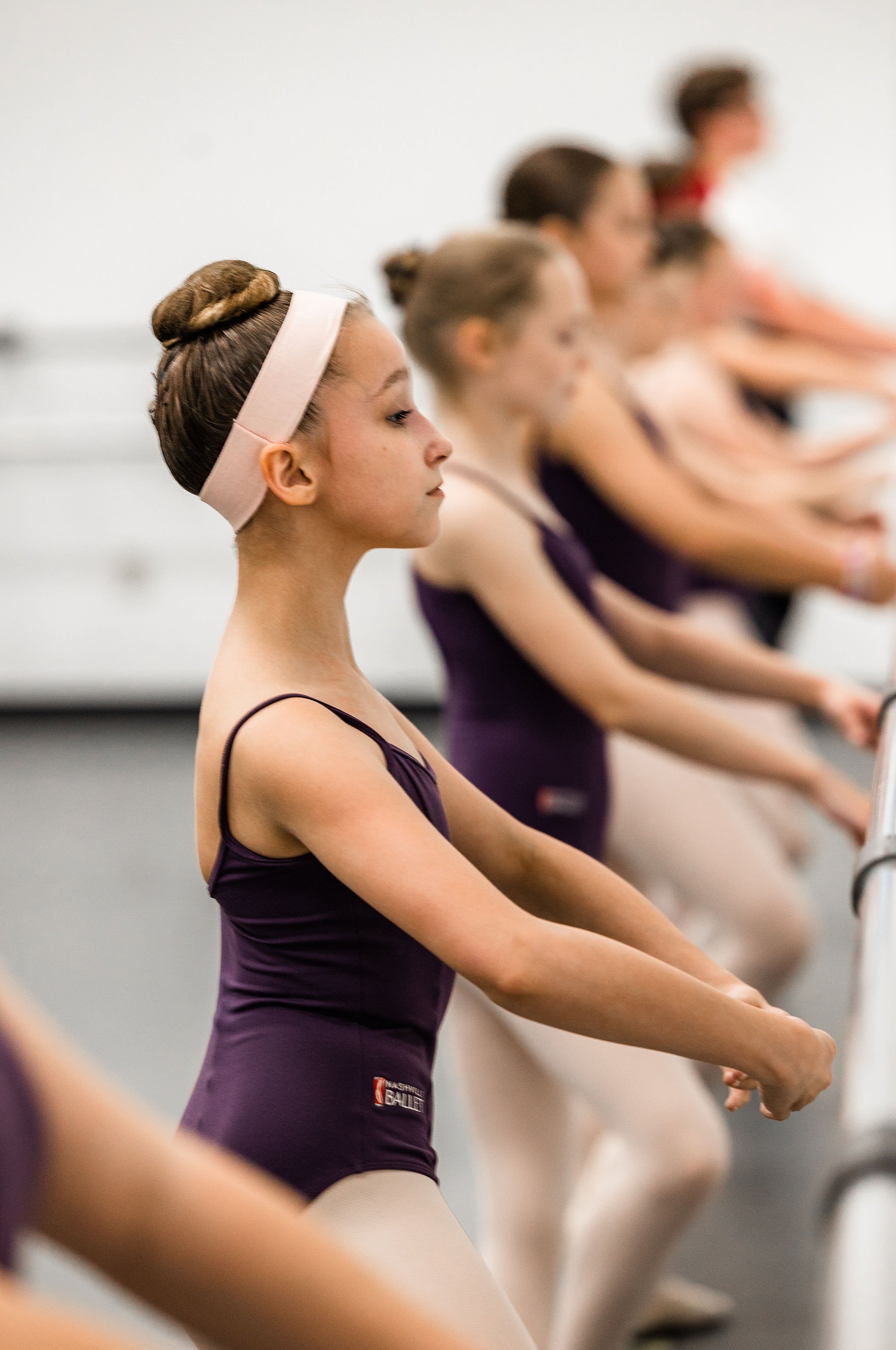
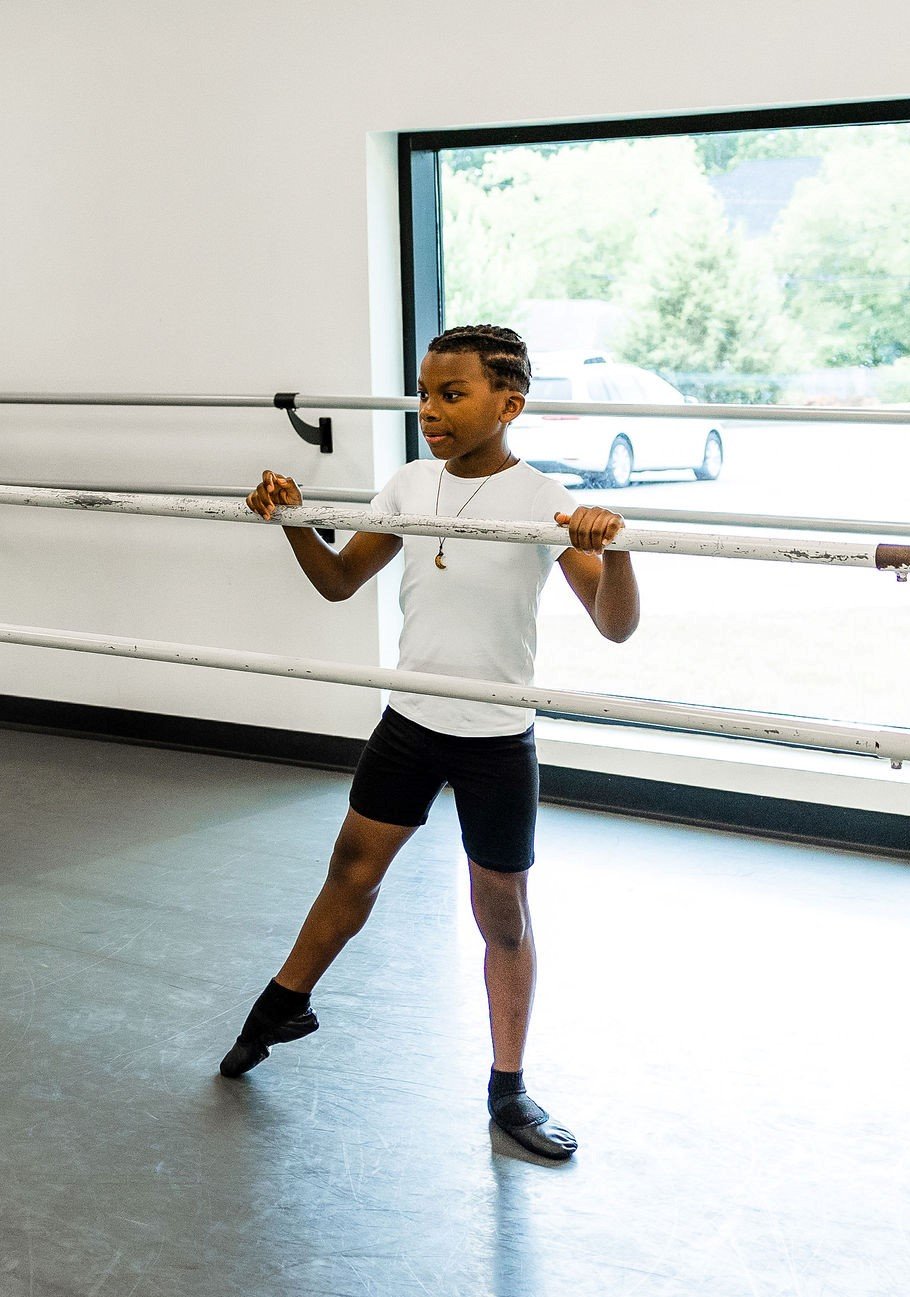
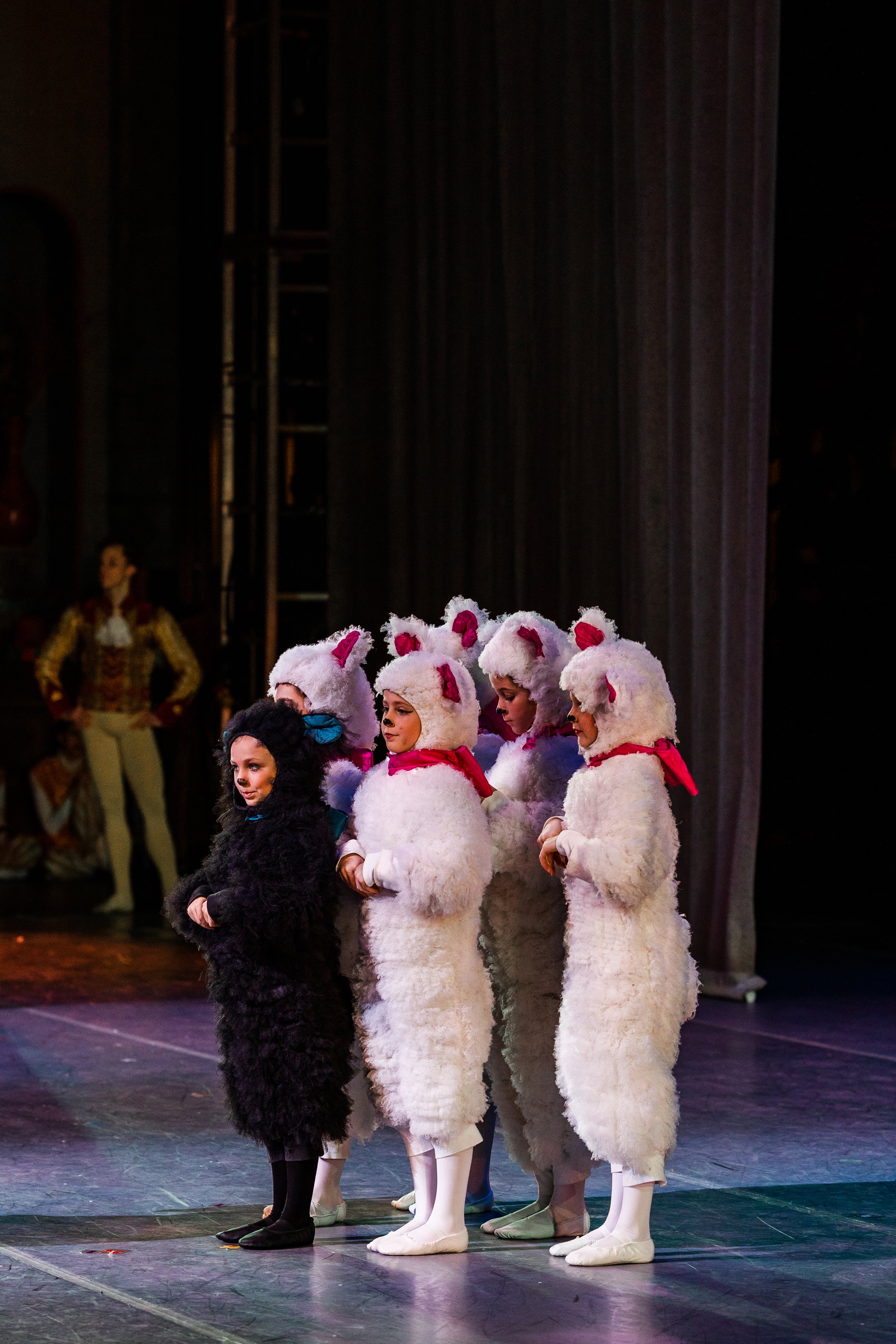
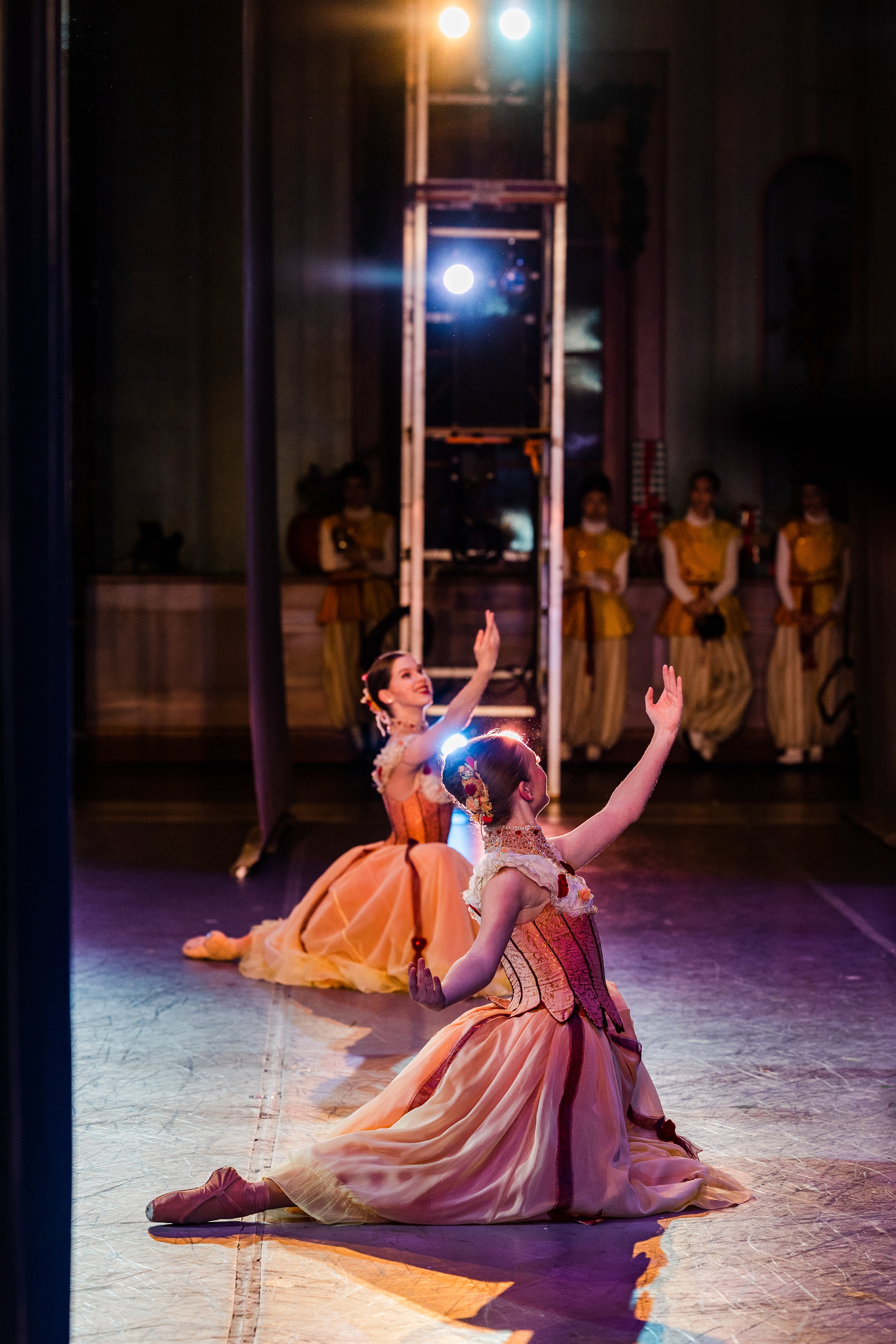
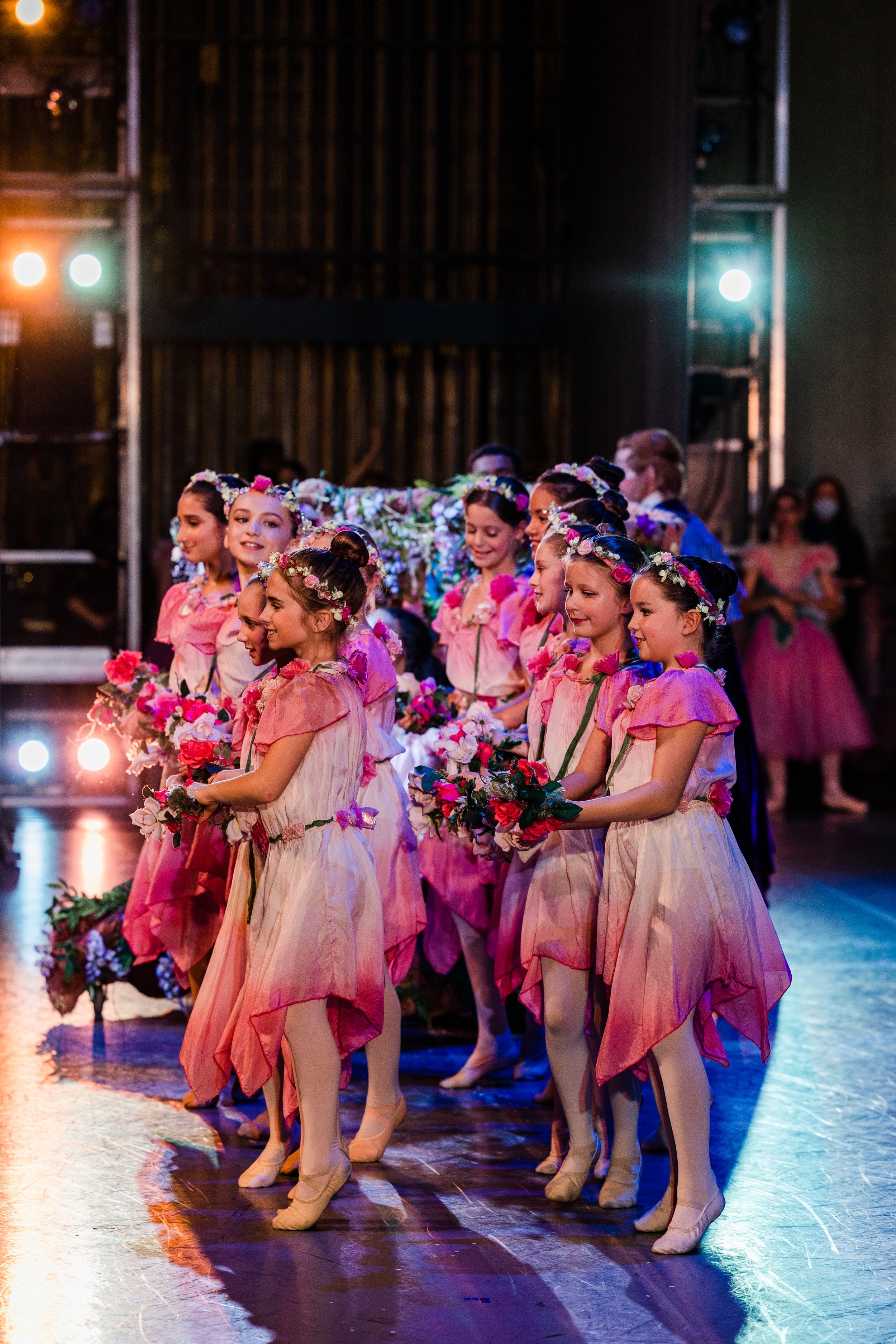
Frequently Asked Questions
-
Students are placed in a level appropriate for both their age and level of physical and/or technical development. They are also placed based on the syllabus of the Royal Academy of Dance for the Children’s Division and School of Nashville Ballet’s syllabus for Academy, Community Youth, and other programs. Our instructors are trained professionals who provide age-appropriate dance training for all our young artists. Placement within a level is subject to change solely at the discretion of the Artistic Faculty.
-
It is important to understand that ballet is a rigorous activity, both physically and mentally. When young students begin ballet training, it is extremely important to remember that their bodies are still developing. At an early age, the bones, ligaments, tendons, and muscles are not necessarily strong enough for the support of the body required by formal dance training. Strength, flexibility, coordination, confidence and the love for dance may be gained during these early years and will prepare the student for the demands of the art. For the same reason, students should not be put on pointe too soon. Eleven is generally an appropriate age for beginning pointe. Readiness for pointe is assessed on an individual basis taking into consideration age, years of training, strength and the understanding and physical demonstration of necessary skills and the required technique.
-
Children's Syllabus:
School of Nashville Ballet Children's Division follows The Royal Academy of Dance curriculum. The Royal Academy of Dance (RAD) is an international dance education and training organization, and examination board that specializes in ballet. The RAD was established in London, England in 1920 as the Association of Operatic Dancing of Great Britain, and received its Royal Charter in 1936.The RAD was created with the objective to improve the standard of ballet training in the UK and, in pursuit of that goal, a new teaching method and dance technique was devised for the Academy by a group of eminent European dancers. The RAD is one of the largest dance organizations in the world with over 13,000 members in 79 countries. For more information, visit the Royal Academy of Dance.
Academy & Young Men's Scholarship Program Syllabus:
Adhering to strict classical standards and logical progressions, the School of Nashville Ballet’s syllabus evolves in tandem with students progress and adapts to advancements in pedagogy practices. Our goal is to train versatile pre-professional dancers that are competitive in any college or professional program they may wish to pursue.Community Youth:
This division also adheres strict classical standards and logical progressions with an emphasis on ballet movement. The faculty for these classes are trained by Academy Artistic Faculty to ensure consistency across all programs. The schedule for this division allows students to participate in other extracurricular activities while still receiving exceptional ballet training. -
Observation of classes is only permitted during Observation Week or by special arrangement with the School Administrative Director. It is highly inappropriate and disruptive to the class for parents and friends to wander the hallway looking in on classes. This is to ensure that the students stay focused on their class work and teacher, rather than visitors. You can meet your child’s instructor at Open House, Orientation, or by scheduling a meeting with the front desk.
-
Children's Division:
Our Children's Division recently had the opportunity to perform in May 2025 as a part of our Celebration of Dance!In our weekly classes, we focus on fostering a love of movement and building a strong classical ballet foundation, so students are ready to join our Academy or Community Youth Programs. We also have an Observation Week twice a semester where family and friends are welcome to watch and to see their dancer's growth! Check our School Calendar for Observation Week dates. Students are eligible to audition for Nashville's Nutcracker starting at age 8.
Academy/Young Men's Scholarship Program:
Students are strongly encouraged to audition for Nashville's Nutcracker once they reach the appropriate age. School of Nashville Ballet students receive priority casting, and it is an incredible opportunity to perform with professional dancers. Academy and YMSP students will also have the opportunity to participate in our annual Celebration of Dance performances at the end of the school year. These include a Contemporary Showcase for Levels 3 and up, as well as a full-length classical ballet featuring all Levels that changes from year to year. There are also class Observation Days built into the School Calendar, during which family and friends may watch their dancers in class.Community Youth:
Students are strongly encouraged to audition for Nashville's Nutcracker once they reach the appropriate age. School of Nashville Ballet students receive priority casting and it is an incredible opportunity to perform with professional dancers. Additionally, the Community Division will have the opportunity to perform in the annual Celebration of Dance performance that includes our Community Adult Dancers, Adaptive Dancers, Optional Disciplines, and other community partners. We also have Observation Week twice a semester where family and friends are welcome to watch and see their dancer's growth!
Handbook & General Guidelines
Nashville Ballet and School of Nashville Ballet are not responsible for a dancer’s personal property. Please put your name on all of your belongings.
All students are expected to wear the dance apparel specified for their level (see uniform information). Dance clothes and shoes are to be kept clean and sewn.
All students are required to wear street clothes (a complete cover-up) and street shoes when entering and exiting the building. This preserves the life of our highly specialized dance floor as well as students’ dance shoes.
Do not park in the “drop-off” lane to come into the building, as this leads to traffic back-ups. If you need to come inside our building, please park in a designated parking space.
Nashville Ballet is a smoke-free environment. No gum-chewing is allowed in the building. No food and drink are allowed in the studio except water.
Once class has begun, students are not permitted to enter without the permission of the teacher.
Students are to use only the front entrance of The Martin Center to enter and leave the building except in case of emergency.
Students are not to open any outside doors in the building for any person other than a faculty or staff member. When in doubt, don’t let them in.
Students should check their portal daily for changes in the schedule, special events, messages, etc.
Except in the case of an emergency, office staff will not interrupt class for phone calls, messages, etc. Messages will be taken and given to students after class.
Absences must be reported through the portal prior to class time.
Students may make up missed classes in a level equal to or below their own. Students must sign in for make-up classes at the front desk.
A release of claims and treatment authorization form must be completed and on file before a student will be allowed to take class. This should be completed at the time of registration.
No jewelry (watches, necklaces, etc.) except small earrings are to be worn to class.
No loose hair around the face.
No plastic, rubber, cloth pants, or loose shirts are to be worn in class. With permission from the teacher, close fitting warmers may be worn in case of injury.
If a student is excessively tardy, incorrectly dressed, or is disrupting the class, they may be asked to observe class rather than participate.
All dancers must wait for their parents inside the lobby.
We ask that all students do their best to keep the hallways, lobby, and studios clean.
Every student, parent, and teacher in School of Nashville Ballet is expected to follow these instructions and regulations and to behave throughout the facility and in email/telephone communication in a disciplined, responsible, and courteous manner. School of Nashville Ballet reserves the right to suspend or dismiss any student or family whose attitude, attendance, or conduct is found to be unsatisfactory.
Have a question? Contact School of Nashville Ballet at 615-297-2966 x910 or school@nashvilleballet.com.

